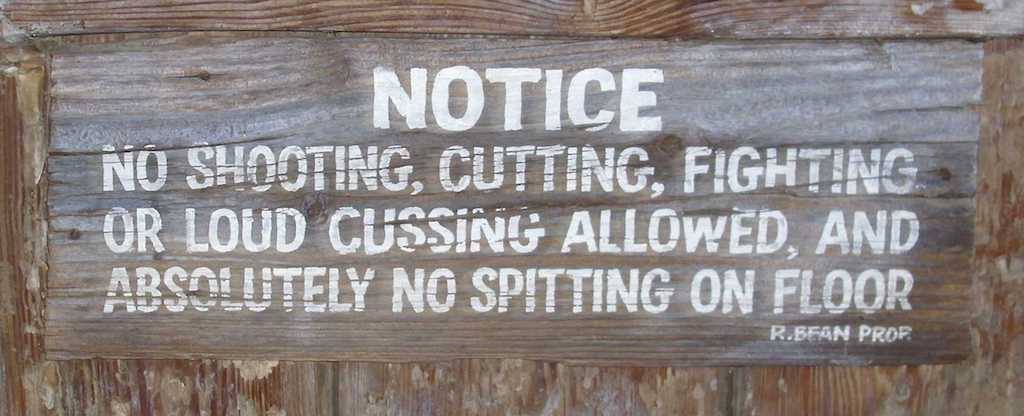
photo by Ralf Kiepert (CC BY-SA 3.0)
I've noticed something around me that I find curious: some people noticeably filter cuss words out of their language. They usually say something like, "Well, I can't say that in front of a pastor." Others don't filter their language but then sheepishly say something like, "Oops. Sorry, pastor." Friends, let me ease your anxiety. Cussing might be helpful.
Back in January an international research team published a report in the journal, Social Psychological and Personality Science, and wrote, “We found a consistent positive relationship between profanity and honesty; profanity was associated with less lying and deception at the individual level and with higher integrity at the society level.” In our Access sermons over the past month we've looked at strategies for healthy conflict, and the Bible has continually emphasized the importance of honesty. We've also learned that naming, expressing, and taking responsibility for our emotions helps improve the outcome of confrontations. The researchers indicated that cussing helps with part of that too: “The spontaneous use of profanity is usually the unfiltered genuine expression of emotions.”
However, the researchers reported another finding: “Swearing has also been shown to hold a negative relationship with the personality traits of conscientiousness and agreeableness.” So, when people are being honest, they may swear, but people also swear when they’re just being mean. This past Sunday I referred to Colossians 3:14 that says, “Above all, clothe yourselves with love,” and I highlighted that the English word “love” is translating the Greek word “agape” which means self-sacrificial actions for another. That kind of love is the opposite of being mean to others. I’d be remiss if I didn’t also mention that one of the 10 Commandments is not to use God’s name “in vain,” and numerous other verses direct us not to curse others or use language that tears others down.
On the other hand – or back to the first hand, I guess – I'd also be remiss if I didn't share that Paul wrote in Philippians 3:8 (KJV), "I count all things but loss for the excellency of the knowledge of Christ Jesus my Lord: for whom I have suffered the loss of all things, and do count them but dung, that I may win Christ", only he didn't say "dung" (at least not in the original Greek). Paul expressed with deep honesty and emotion just how valuable he considered his knowledge of Christ.
Here's what I'd like you to take away from all of this. If your language is mean or hurtful, whether profane or not, I hope you'll seek God's help and work to change it. As for your and my conversations, I'd love to interact with the raw, unfiltered, honest, genuinely emotive you. That's how God knows you and loves you, and it's how I'd like to know you and love you too.
I hope you'll join us for worship at Access this Sunday. FUMCR's senior pastor, Dr. Clayton Oliphint, will be preaching and sharing the scriptural basis behind our church's mission: With Open Hearts and Minds, we Welcome people for Christ, Grow people in Christ, and Serve people with Christ. I'll be preaching in the sanctuary services all morning and looking forward to being back with you the following week.
In Christ,
Rich

Access Pastor
First United Methodist Church Richardson